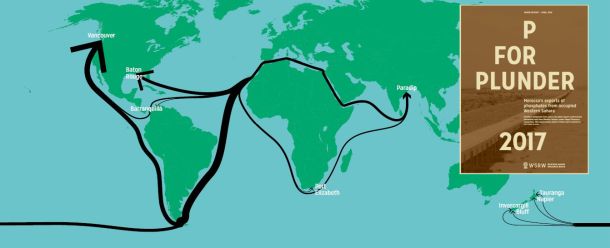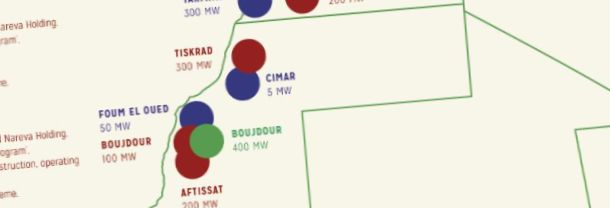
Siemens Gamesa, Siemens Energy and Enel Spa have been excluded by Norway's largest private asset manager for contributing to violations of international law in occupied Western Sahara.
This week, the Norwegian asset manager Storebrand published its list of excluded companies as of end of 2020. Three companies are added to the list due to their operations on occupied land: Spanish company Siemens Gamesa, German company Siemens Energy AG and Italian company Enel SpA.
“Climate projects are fundamentally important, but such investments should clearly not be made at the expense of human rights or international law”, Erik Hagen of Western Sahara Resource Watch told the news service Responsible Investor today, adding that WSRW commends Storebrand for a “good and principled decision”.
All three companies were excluded for operating on occupied land in Western Sahara. The three have not obtained permission from the Saharawi people to operate there, but conduct operations on agreements with the neighbouring country of Morocco, which illegally occupies the territory. The recent addition of the three companies can be seen by comparing the overviews of Storebrand's excluded companies from Q3 to Q4 of 2020.
The exclusion comes as a result of Storebrand's policy on not wanting to offer its clients investments that contribute to violate international law in occupied Palestinian territories and occupied Western Sahara.
“We have engaged with the companies but found that they have not carried out comprehensive human rights due diligence of the projects and their business partners in Morocco occupied Western Sahara", Tulia Machado-Helland, Head of Human Rights at Storebrand Asset Management, told Responsible Investor.
"The companies are involved in wind farms projects in occupied Western Sahara partnering with Moroccan authorities and private sector and neither the companies nor their partners have consulted and obtained the consent of the Saharawis as required by international law. The companies intend to continue with these projects. Storebrand cannot via its investment contribute to a situation that can legitimize violation of international law", Machado-Helland told.
As late as in September 2020, Siemens Gamesa announced that it had landed a large deal in “Southern Morocco”, as the company refers to Western Sahara. No governments in the world - except that of Donald Trump - has recognised Western Sahara as part of Morocco. Siemens Gamesa's annoucement came inspite of several years of active engagement by investors trying to convince the company to respect the right to self-determination of the people of the land. The new agreement was condemned by WSRW.
Hagen told that Siemens Gamesa’s statements suggest that shareholder engagement has not been effective, “leaving investors with exclusions as the only option”.
Hagen told the news service that Siemens and Enel “have no right signing large energy agreements on occupied land. The fact that the companies claim that their presence contributes to local development is not only completely irrelevant, but also highly disputed. It is up for the people of Western Sahara to decide such matters - not Siemens, Enel or Donald Trump.”
Siemens and Enel has a company owned by the King of Morocco, Nareva, as main partner in the occupied territory. Shortly after the annoucement of Trump's recognition of the baseless Moroccan claims, it was revealed that Nareva is to receive large funding from the Trump administration.
New report: Western Sahara phosphate trade halved
The export of phosphate rock from occupied Western Sahara has never been lower than in 2019. This is revealed in the new WSRW report P for Plunder, published today.
New report on Western Sahara phosphate industry out now
Morocco shipped 1.93 million tonnes of phosphate out of occupied Western Sahara in 2018, worth an estimated $164 million, new report shows. Here is all you need to know about the volume, values, vessels and clients.
New report on contentious Western Sahara phosphate trade
Morocco shipped over 1.5 million tonnes of phosphate out of occupied Western Sahara in 2017, to the tune of over $142 million. But the number of international importers of the contentious conflict mineral is waning, WSRW's annual report shows.
Moroccan wind energy in occupied Western Sahara passing 40%
Even more wind farms are being planned in occupied Western Sahara, and all of them are in the portfolio of the Moroccan monarch's company NAREVA.



